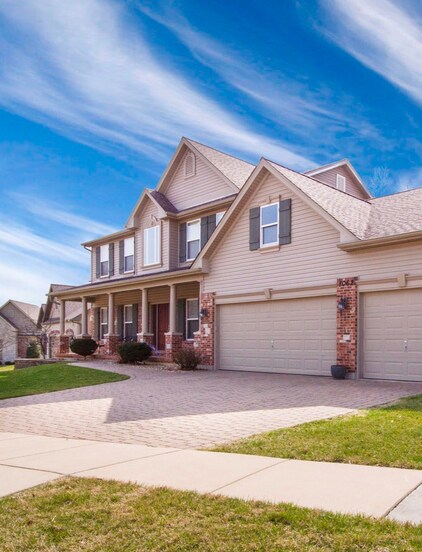 I have a teenage son who swears listening to music helps him pay attention during school. After doing some research, I'm not so sure about that. There are some workplace distractions that we all know torpedo our productivity. We don’t need an article to tell us that social media and break room chatter hinder us from getting things done. But what about music? Afterall, that’s what we use to block out distractions and get in the zone. Do our favorite tunes actually make us productive or do they slow us down? It turns out that the answer to that question depends on why you listen, how easily you get bored, and what you’re playing. The goal: avoid multitasking The golden rule of music and productivity is that you must avoid multitasking at all costs. There’s no better way to hamstring your productivity, torpedo your IQ, and potentially damage your brain than by trying to divide your focus between two tasks.¹ So if you’re listening to music to drown out your talkative co-workers or that weird noise the AC makes, you’re on the right track. If you’re jamming out to tracks that make you think about highschool crushes and epic concerts, you might be doing yourself more harm than good. Complexity and distraction But it gets more complicated. Some people respond better to working while listening to music than others. A study discovered that boredom-prone individuals performed both simple and complex tasks better in silence, while the opposite was true for the less boredom-prone.² The researchers hypothesized that the jobs at hand were engaging enough to keep the easily bored occupied. The music was unnecessary external stimulation that dragged their attention away. This means that there isn’t a one size fits all solution for using music for productivity. If you’re easily bored and distracted, you might want to avoid music while you work altogether. Noise cancelling headphones might come in handy, but be sure not to pump music through them. By contrast, more naturally focused individuals might find soft background music helps them zone out the noise and laser in on what they need to do. What makes good focus music? So let’s say you’re not distraction prone and you like working to some tunes. What music should you listen to? Despite what your uncle in the orchestra would have you believe, there isn’t a single best genre of music to stimulate your brain (sorry, Mozart). What you’re looking for is music with certain qualities. First, find music that’s the right tempo. You’re shooting for around 60 beats per minute to minimize stress and promote focus. No dance music or break-neck metal! Second, avoid words. You’re probably listening to music in an attempt to cancel out conversation, not distract you with lyrics chock full of hidden meaning and symbolism that may catch your curiosity. Choose instrumental music over your favorite lyrical genius next time you need to work. A third option is to find something to listen to that’s not even music: nature sounds. Weirdly enough, trickling streams and the soft fall of rain are all random enough sounds that your brain doesn’t even bother with attempting pattern recognition. It’s a great way to mask office noise if music just isn’t working for you. Ultimately, you’re looking for music (or nature sounds or white noise) that reduces diversions without becoming a diversion itself. Make this an opportunity to explore new kinds of music and try listening to them next time you need to focus on a project. And let me know if you find any hidden gems of slow classical music being performed in front of a gurgling mountain stream!
0 Comments
 Whether you’re renting or you own your home, there are various insurance options you may want to consider. Like any insurance, they’ll help provide financial coverage in the event of an unexpected disaster. There are also varying levels of insurance that you may choose. For Homeowners There’s a general category known as “homeowner’s insurance”, which usually covers four categories: interior and exterior damage, damage to or loss of possessions on the property, and personal liability coverage that will help cover the cost of injuries sustained while on the property (such as if a guest slips and falls down the steps to the front door, your dog bites the mailman, your daughter's friend falls off of your balcony...you get the idea). Most policies will cover lodging and meals while the property is under re-construction due to a covered loss and not able to be inhabited for the duration.The damages section of the policy usually won’t cover acts of war or nature, the latter including things like volcanic eruptions or floods - check your policies exclusions! For geographical areas prone to certain disasters, a separate, specialized insurance policy may need to be purchased in order to cover damages or loss caused by such disasters. For example, for areas that are low-lying and near rivers where frequent heavy storms occur (hello Boulder), general insurance may not cover damage to the property. Conversely, properties in mountainous areas are unlikely to need flood insurance but may need earthquake and/or landslide insurance if such events are more common there. For Renters While homeowner insurance will cover damage to the property – which is a major concern for those with a financial stake in the property – renter’s insurance usually covers damage to and loss of possessions, and also offers coverage for personal liability for injuries sustained on the property. The landlord likely has an insurance policy on the property to help protect against financial loss in the event of physical damage, but their insurance unlikely will extend to the tenant’s possessions or guests’ injuries. Thus, those who rent the property will need to consider insurance policies for these events. Which Policies to Choose As with any insurance policy, there may be deductibles, liability limits, covered and noncovered events and assets, and premiums. Generally the higher the limits and the broader the group of included incidents or assets, the higher the premium will be. Some issues to consider:
The bottom line is that you should shop around for the best rates and coverage. If you own multiple properties, try to find a company that allows claims to be attached to the property and not to your name -- that can make a big difference in premium. Each individual will need to find the best fit. Make sure you have coverage for any specific circumstances that may be common in your area. And most importantly, make sure you thoroughly read and understand your policies, and the situations they cover, and don’t cover. Should you need further guidance, we provide free policy reviews. |
Meet the author:
|
Navigation |
Connect With UsShare This Page |
Contact UsFront Range Insurance Solutions
215 Cheesman St, Suite M, Erie, CO 80516 (720) 389-7651 Click Here to Email Us |
Affiliated with DCI |
Location |
Website by InsuranceSplash


 RSS Feed
RSS Feed
